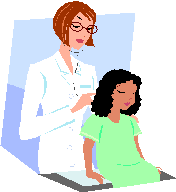 One of the most moving moments (and there were many of them) at Global Genes’ recent patient summit was when Heather Long, founder of the Texas based non-profit U. R.
One of the most moving moments (and there were many of them) at Global Genes’ recent patient summit was when Heather Long, founder of the Texas based non-profit U. R.
 One of the most moving moments (and there were many of them) at Global Genes’ recent patient summit was when Heather Long, founder of the Texas based non-profit U. R. Our Hope, rose to tell the audience why she felt that diagnosis was such a critical issue for the rare disease community. Long and her husband, Cody, have three children; two daughters and a son who passed away in 2006 at the age of 5. They know that they have lost their son. What they don’t know is why. Doctors told the Longs that Cal probably had a very rare metabolic disease, but they were unable to diagnose it.
One of the most moving moments (and there were many of them) at Global Genes’ recent patient summit was when Heather Long, founder of the Texas based non-profit U. R. Our Hope, rose to tell the audience why she felt that diagnosis was such a critical issue for the rare disease community. Long and her husband, Cody, have three children; two daughters and a son who passed away in 2006 at the age of 5. They know that they have lost their son. What they don’t know is why. Doctors told the Longs that Cal probably had a very rare metabolic disease, but they were unable to diagnose it.
Since then, Long has devoted her life to helping other families who are desperately seeking a diagnosis for a rare disorder. Along with supporting families in their search, her organization works to pass legislation and create a network of physicians who are faced with similar cases so they can collaborate on finding a diagnosis and improve care and outcomes for their patients.
A Cause We All Care About
Diagnosis is a cause everyone cares about. Doctors want a correct diagnosis for the disease so they will know how best to treat it. Pharmaceutical companies want patients to be diagnosed so they will have access to the best care. Parents want their children to be diagnosed because they know, better than anyone else does, that having a name for your child’s disease may mean the difference between life and death. Parents like Long and others who have lost children to rare disorders, care deeply enough to devote their time to creating new systems that will help diagnose children they have yet to meet.
Why Diagnosis Matters
Sometimes the disorder is so rare that it has no name. But far too often with rare disorders, the problem is misdiagnosis or a delayed diagnosis. There may even be a treatment out there somewhere which could slow progression – if you only had a name for the disorder. Patients who have been misdiagnosed may not only fail to receive appropriate care, but also might undergo treatments that could potentially harm them, including surgery and psychiatric treatments.
The scope of the problem is staggering. According to a EURORDIS study 25% of patients with a rare disease had to wait between 5 and 30 years for a diagnosis, 40% received the wrong diagnosis, and others received no diagnosis.
What Is Being Done
There are many ways people and organizations are working to improve diagnosis, everything from the National Institutes of Health Undiagnosed Disease Program to nonprofits like In Need of Diagnosis. There are also exciting new uses for technology that are providing improved access to research data and facilitating diagnosis. Take for example FindZebra.com a search engine for rare diseases. Also Granatum, a kind of Facebook for cancer researchers that describes itself as “a social collaborative working space semantically interlinking biomedical researchers, knowledge and data.”
In the next few weeks we will be taking an in-depth look at what is being done to improve diagnosis of rare diseases. We invite you to come with us on this journey – and please let us know of any initiatives you would like to add to our list.
Photo courtesy of Horia Varlan on Creative Commons







